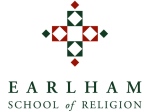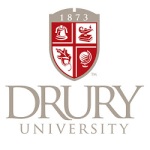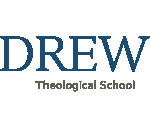SUBVERTING THE NORM is a three-day event that brings together pastors, theologians, philosophers, church practitioners, researchers in religion and all those interested in exploring the relationship between postmodern theologies and the future of the church. Some of the questions we’ll consider at the third Subverting the Norm include:
In what ways is the work of religious thought offered by postmodern theologies also a work of political thought?
Why do so many strains of the postmodern religious conversation (death of God theologies, postsecular philosophies, radical theologies, and emergent church practices) – despite emphases on the other – tend to be dominated by white male voices that are usually from significant privilege? And what might these postmodern theologies learn from theological traditions that more often place questions of power and politics at their centre, such as liberation, feminist, queer, and postcolonial theologies?
Is postmodern theology and religious practice insufficiently political, at least insofar as it plays out in academic and church circles?
Can postmodern theologies open theoretical and practical possibilities for collective resistance and for social, political, economic and ecological transformation?
Are religious collectives and churches contributing to a new and distinct approach to socio-political transformation? Or do postmodern religious collectives and communal practices mimic rather than challenge the contemporary political, social and economic cultures they intend to avoid?
And, finally, if established churches and collectives are to be faithful to the revolutionary event that gave birth to Christianity, how might they be informed by such approaches to political theology?
Interactive learning tracks related to ministry, liturgy, worship, preaching, community organizing, art and much more will be offered.
A DISCLAIMER ABOUT THEORY & PRACTICE (for the inquiring minds who want to know)…
At Subverting the Norm, there tends to be a fairly strong emphasis on the notion that theory is practice. To borrow the words of Subverting the Norm keynoter Namsoon Kang:
[W]e should recognize the significance of theological discourse as public discourse that affects the lives of people in a concrete way. People’s participation in the theological discourse can distort or transform their identities and understandings of self, the world, and the Divine. Therefore, theological discourse is neither merely a matter of interpretation of the tradition, the scripture, or doctrines, nor a matter of transmitting inherited religious identities. Theological discourse can be, in and of itself, a form of identity and solidarity. Feminist theological discourse, for example, has transformed identities and established solidarities especially among women. It did not just present the interests of women whose identities they fixed in advance. Feminist theological discourse created both an arena of discourse among women and a stronger voice for women in discourses that were male dominated. The solidarity formed among women and men of conscience had to do with the capacity of this theological discourse to bridge the concerns of personal life and the public institutions and culture.
Theological discourses function in various ways as sites of contestation and resistance, of forming new religious and personal identities, and of building solidarities. Theological discourses that theologians produce, disseminate, and teach in academia are not simply objective interpretations and neutral reflections on the world and the church in it. Instead, theological discourses are productions of and for the world and the church that we live in. Stereotyping theologians and academics as those residing only inside ivory towers; bipolarizing theology-ministry, theory-praxis, knowing-doing; or differentiating academism from activism overlooks the significant functions that theological institutions and their theological discourses play for their constituencies, the students they educate, the church in which they interact, and the larger society to which they communicate. Theological discourses are the epistemological ground for educating students of theology who work and will work for the world and the church in it. Theological discourse contributes to the deconstruction of the old and the constant reconstitution of the new religious identities; to new understandings of the self, the world, and the divine; and to a new vision for an alternative world and one’s commitment to a more just world… Theological discourses could be the grounds upon which religious practitioners, believers, students, activists, or academics center their practice of belief and their love for the world.






Ok. So what if you’re not a pastor, theologian, philosopher, church practitioner or researcher in religion, but you are someone who has recently started questioning and doubting everything and is totally intrigued by this group of presenters? Would this conference be for you?
Absolutely — we should clarify that in the description! Thanks for the heads up and I look forward to seeing you at the conference!
Thanks Phil. Liked your video btw.
Yes it would. This is a perfect place to bring your doubts and hear about others that have doubted and have found themselves putting the pieces back together. Thats what we call, “Post Modern Theology”.
Thanks, Erica.
for those who cannot attend, will there be a way to gain access to the conference content online?
I know that Homebrewed Christianity will be doing some podcasts, and I’m hoping that we’ll at least capture the audio content for several of the talks. When I know more I’ll let you know…
Also, we’re hopeful for an edited collection.
Will advertise this widely. Looks great!
Thanks for sharing the word about the conference! We just released an updated schedule a few minutes ago http://bit.ly/WslBfb
Is that Mindy McGarrah-Sharp as a presenter?
Yes
I purchased a ticket during the “early bird” special, but now have a conflict. Is there a way to get a refund?
Bummer! I’m sure we can find a way to refund it. Could you please send an email to subvertingthenorm@gmail.com about it? Thanks.
thanks Phil for your planning…and would also like to know about podcast or audio as available…do miss Drury and Spfld in far away Boston
Hoping to have some mp3s to share!
Where should we be looking out for them? Really would love to listen to your academic track speakers, but I’m in the UK!
We’ll announce on Twitter and/or post here. Also there will be an edited book featuring several of the presentations.
Another request here for making some of the content available afterwards- this sounds fantastic but being in the UK makes it a bit inaccessible!
Post Modernism essentially says there are no absolutes but isn’t God an absolute. I find the idea of post modern religion a contradiction in terms!
I see your excellent comment was denied a response. “Subverting the norm” apparently doesn’t include answering the hard questions!
While you guys have all the fun I will sit out here in India and wish to do something on these lines out here some time..
Wish you could make the trip!
at the end of the post the quote from Namsoon Kang’s book is missing. Inquiring minds want to know what the quote is.
Oops, I left the book at home! Will add it soon. Thanks for the reminder!